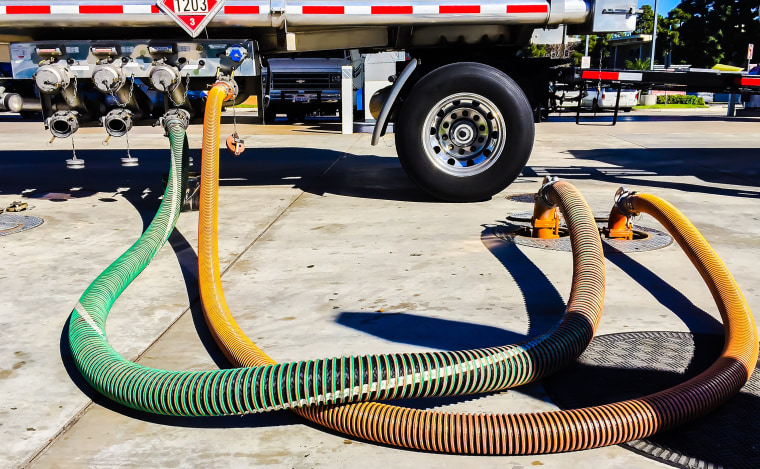California is a national pacesetter for progressive policy. When those policies relate to climate change, however, not even California seems capable of finding its stride.
Under immense pressure from the oil industry, state leaders on Wednesday agreed to gut a historic piece of climate change legislation, dropping a provision that would have required a 50% cut in petroleum use in cars and trucks by 2030.
The modified bill, which lawmakers are expected to pass on Thursday, still includes commitments to boost renewable energy production and bolster building efficiency, both by 50% over the next fifteen years.
RELATED: Hundreds of California farmworkers without running water
But the gasoline target was a test of the state’s power to battle greenhouse gases, and it’s failure clearly frustrated supporters, including Gov. Jerry Brown and his allies in the senate.
State Sen. Kevin de León, who wrote the original bill and got it through the senate earlier this year, blamed the loss on the fossil fuel industry’s “bottomless war chest.”
“I don't think we've seen an amount of money spent like we have seen in the last four months—tens of millions of dollars spent to create this smoke screen,” he said at a Capitol press conference late Wednesday.
Kathryn Phillips, who runs the Sierra Club’s California chapter, went even further, saying that the oil industry was waging “war on humanity” by blocking efforts to reduce heat-emissions as much as scientists say is necessary to avert catastrophe.
“The oil companies are ruthless,” she said. “They are determined to tell every lie they can and to scare people to death just so they can keep as much market share as possible.”
The opposition was lead by the Western State Petroleum Association, a trade group that includes BP, Chevron, Shell Oil and Exxon Mobil as members. The group spent nearly $9 million on lobbying last year, according to public records, and in recent months, it filled radio and television airtime with ads alleging that California was headed for gas rationing, a ban on minivans and economic ruin.
“This law will limit how often we can drive our own cars,” a narrator in one advertisement says, under the name “California Drivers Alliance.” Another spot presents the climate change legislation as all about “limiting how far we can drive” and “penalizing drivers for using too much gas”—claims the bill’s authors say are baseless.
For supports of the legislation, the sense of loss is compounded by doubt that other efforts to curb carbon emissions will succeed. The California bill was backed by the might of billionaire environmentalist Tom Steyer and powerful fourth term governor in Jerry Brown, not to mention a state assembly that’s 65% Democrats.
If they can’t succeed in their ambitions, it raises serious questions about the fate of a hoped for global climate agreement this December in Paris. It’s “our last hope,” in the words of Fatih Birol, the incoming director of the International Energy Agency. “We are duty-bound to succeed,” France’s President, François Hollande, has added.
Brown, for his part, pledged to redouble his efforts to address climate change, and reach for the gasoline reduction by other means. Before the session ends on Friday, he’s also hopeful that the senate will still pass a bill that makes history, enshrining in law long-term targets for reducing greenhouse gas emissions.
Executive orders by Brown and his Republican predecessor, Arnold Schwarzenegger, commit the state to cutting its emissions 80 percent by 2050. But until those orders become law, they can be easily retracted by a new governor.
“Oil has won a skirmish,” Brown admitted at a Capitol news conference on Wednesday. “But they've lost the bigger battle.”
